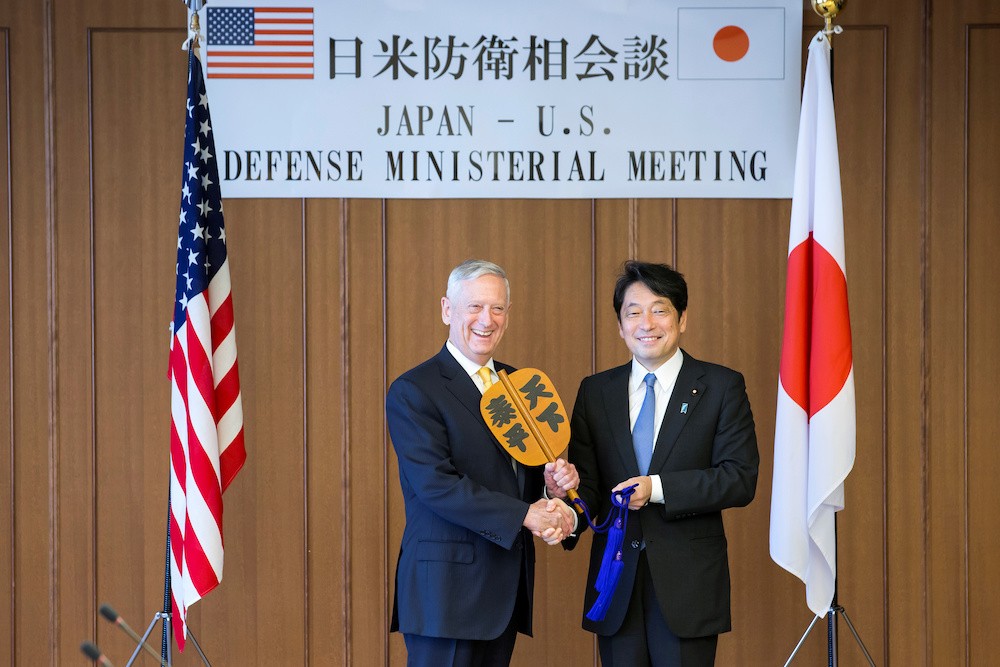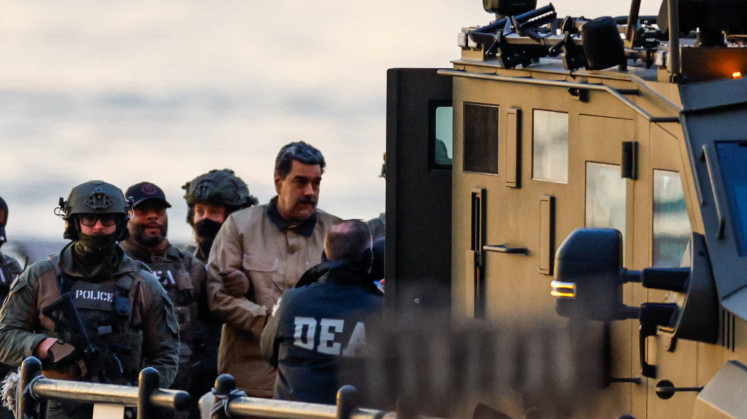Popular Reads
Top Results
Can't find what you're looking for?
View all search resultsPopular Reads
Top Results
Can't find what you're looking for?
View all search resultsJapan to buy advanced US radar for missile defense system
Change text size
Gift Premium Articles
to Anyone
J
apan will next week pick a US-made advanced radar for its multibillion-dollar missile defense system, an upgrade that could help ease trade friction with Washington and provide cutting-edge protection against the arsenals of North Korea and China, sources said.
"Aegis will be a big-ticket purchase; it will be a nice gift for President Trump," said a Japanese government official, referring to the ground-based Aegis Ashore system.
Japanese officials could make their radar choice as early as Monday for two Aegis Ashore batteries it wants to deploy in 2023. That means the purchase can be added to a defence budget proposal slated for release in August, three sources with knowledge of the plan told Reuters, declining to be identified because they are not authorised to speak to the media.
The candidates are Raytheon Co's SPY-6 and a version of Lockheed Martin Corp's Long Range Discrimination Radar (LRDR), the sources said. Japan had sought the SPY-6 when it agreed to buy Aegis Ashore last year, but Washington was reluctant to supply it.
The Japanese budget proposal comes amid an easing of tensions following the June 12 meeting in Singapore between President Donald Trump and North Korean leader Kim Jong un.
Although Japanese military planners still see North Korea as an immediate danger, they view China's growing military power as a bigger long-term threat.
The People's Liberation Army Rocket Force controls an arsenal of hundreds of ballistic missiles that could reach Japan. Upgrades to Japan's missile defences system would make it one of the world's most advanced.
Japanese defence officials have estimated the cost of the two Aegis Ashore batteries at about $2 billion. The final tally, including the SPY-6 or LRDR, which can detect targets several times farther away than existing Aegis systems operated by Japan or the U.S., could be at least twice that, the sources said.
Although the upgrade adds expense, it fits with Trump's stated desire to export more American military hardware.
In a visit to Tokyo in November, he welcomed Japan's procurement of F-35 stealth fighters and urged Japan to buy more U.S. weapons and goods.
Trump has since cranked up pressure on Tokyo with tariffs on steel, threats of levies on car imports and calls for a bilateral trade deal between the two countries.
At a joint news conference with Japanese Prime Minister Shinzo Abe in June, Trump said Abe had pledged to buy "billions and billions of dollars of additional products of all kinds."
Abe may meet Trump again around the time of the United Nations General Assembly meeting in New York in September, a Japanese government official told Reuters. He declined to say what the two leaders would discuss.
RAYTHEON OR LOCKHEED
Raytheon and Mitsubishi Heavy Industries developed Aegis Ashore's SM-3 Block IIA missiles; Lockheed Martin is the prime contractor.
The SPY-6 radar is designed for the U.S. Navy's fleet of Aegis-equipped warships. The LRDR will be integrated into the U.S. Ground-Based Midcourse Defence anti-ballistic missile system in Alaska by 2020.
Both cutting-edge radars will allow Japan to make full use of new longer-range interceptors and could be used to defend against any future threat posed by Chinese missiles.
Japan's military procurement proposals for the year starting April 1 come on the heels of Kim's pledge in Singapore to work toward denuclearization of the Korean peninsula. Trump in return ordered a halt to large-scale military drills with South Korea.
Japan, which hosts about 50,000 U.S. military personnel, including the biggest overseas concentration of U.S. Marines and a U.S. Navy carrier strike group, has said it would not change its military posture until it see concrete signs that Pyongyang is prepared to permanently dismantle its nuclear weapons and ballistic missile programs.
"Aegis Ashore will go ahead because Japan needs it," one of the sources said.










